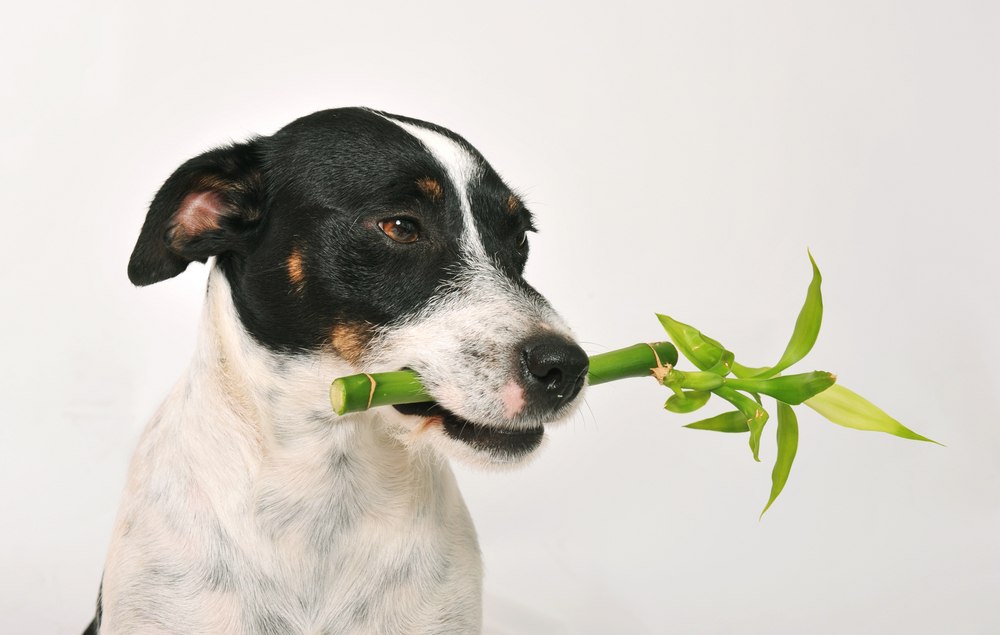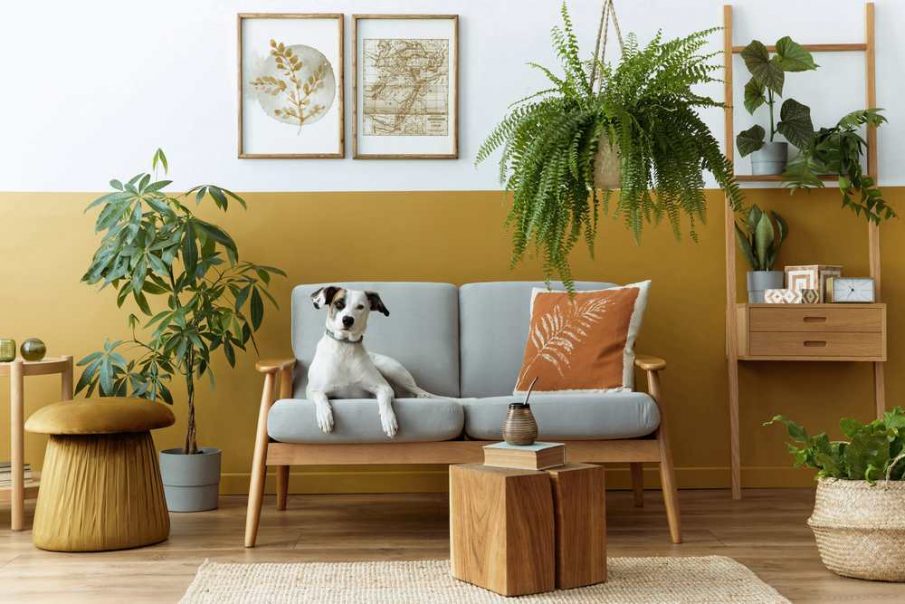Research has revealed the UK’s favourite pet safe houseplants for summer 2021 – with spider plants, philodendron and palm taking the top spots.
According to an analysis of 12.7 million Google searches by homes and interiors brand Sass & Belle, the number of people looking for the term “house plants” and related phrases has increased by 114% year on year – with spider plants the most popular at nearly 700,000 searches, and the philodendron seeing the greatest increase, up by 372% between 2019 and 2020.
It is also useful to know what plants to avoid for your dogs.
Below are the country’s ten favourite pet safe houseplants based on volume of searches:
- Spider Plant (non-toxic to cats and dogs)
- Philodendron
- Palm (most varieties are non-toxic to cats and dogs)
- Fern
- Bamboo (non-toxic to cats and dogs)
- Jasmine (non-toxic to cats and dogs)
- Yucca
- Banana (non-toxic to cats and dogs)
- Lavender
- Dragon Plant
The following is a list of the UK’s most up and coming plants, based on those with the biggest percentage increase in searches between 2019/20 and 2020/21:
- Philodendron: +372%
- Banana Plant: +150%
- Palm: +116%
- Eucalyptus: +98%
- Spider Plant: +92%
- Fern: +86%
- Bamboo: +79%
- Yucca: +68%
- Dragon Tree: +47%
- Lavender: +35%
 When it comes to what we’re looking for in a house plant, the data shows growth in searches for characteristics including fake, pet friendly and air purifying:
When it comes to what we’re looking for in a house plant, the data shows growth in searches for characteristics including fake, pet friendly and air purifying:
- Dog friendly: +210%
- Artificial / Fake: +142%
- Climbing: +114%
- Cat friendly: +107%
- Hanging: +105%
- Air purifying: +61%
While these plants have gained notoriety in Instagram shots around the world, the risk of them becoming overgrown, out of control or simply failing to survive is ever-present – unless their owners know their needs.
Sass & Belle’s data has also revealed an 84% year on year increase in searches for houseplant care – leading to them collaborating with gardening expert Henry Scott to create a complete guide to caring for the country’s favourites.
“Houseplants bring so many benefits, including purification of the air we breathe and improved productivity and wellbeing as a result; and the good news is there are so many beautiful non-toxic varieties for those with pets. But while we would love for those plants to thrive in our care, the reality is that our plants will only stay happy and beautiful if we care for them properly,” explains Sass & Belle’s design manager Chloe Mills.
“Through extensive research underpinning the design of our own range of plant pots, we’ve learned the importance of potting – alongside watering and positioning – as a key factor in plant wellness and longevity. We hope to raise awareness of good plant parenting so even more of us can enjoy the benefits to wellbeing and air quality.”
Henry Scott is a landscape and garden designer at Pehrsson Scott and contributed to the Plant Parenting guide. Henry said:
“Understanding how a particular plant species thrive in nature will allow you to recreate a similar environment in your home. The importance of proper plant care is essential as a healthy plant can ward off disease and pest attacks resulting in a stronger and happier plant that will not only look great but perform its biological functions much better.”
Tim Hollis, head of buying at the Royal Horticultural Society (RHS) added his support for the campaign, saying:
“As well as looking good, houseplants support human health in homes, offices, schools and hospitals. Research suggests that the greatest benefits of indoor plants are through wellbeing and productivity improvement. There is discussion around their influence on indoor air quality. Choosing the right indoor plant for the right space is really important as light and the amount of water given to certain varieties is key to their growth and survival.”
Read Sass & Belle’s Plant Parenting guide for help on how to care for your plants.






